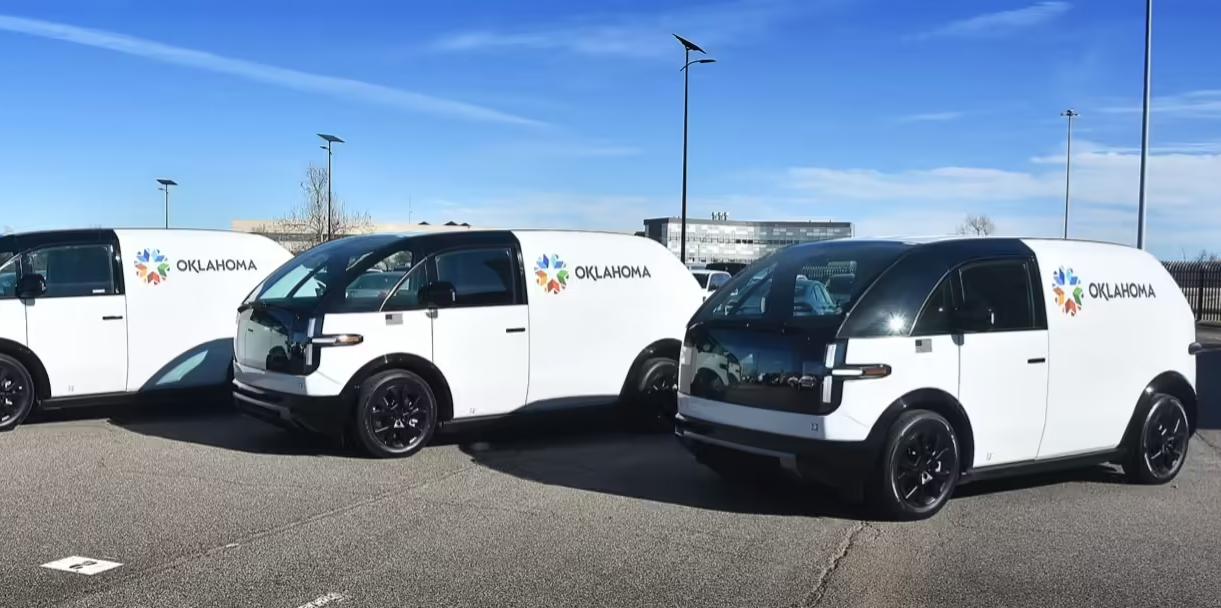Canoo's Bankruptcy: The Plight of Electric Vehicle Startups
The recent bankruptcy filing of Canoo, an American electric vehicle (EV) startup, has garnered widespread attention both within and outside the industry. This is not only because Canoo was once a darling of the capital markets, but also because its downfall highlights many issues faced by EV startups in market competition and technological development.
The Rise and Fall of Canoo
Founded in 2017, Canoo quickly captured market attention with its innovative skateboard chassis technology and product design. The company secured cooperation agreements with renowned organizations such as NASA, the U.S. Department of Defense, the U.S. Postal Service, and Walmart. Despite these advantages, Canoo failed to establish a firm foothold in the highly competitive market.
By September 30, 2024, Canoo's cash and cash equivalents had dwindled to just $1.53 million, putting the company's financial situation under extreme pressure. In December of the same year, due to a lack of funds, the company closed its assembly plant in Oklahoma and placed the remaining employees on "mandatory unpaid leave." Ultimately, the board of directors made the difficult decision to file for bankruptcy protection after failing to secure financial support from the U.S. Department of Energy's Loan Programs Office and unsuccessful negotiations with overseas capital.
Multiple Factors Behind the Bankruptcy
Canoo's bankruptcy was not caused by a single factor but rather by a combination of issues. First, the company made substantial investments in R&D and marketing but failed to achieve effective mass production and cost control. Second, Canoo's business model had flaws; its innovative subscription model did not gain widespread market acceptance. Additionally, internal management was chaotic, with frequent executive departures that further weakened the company's competitiveness.
Canoo was also accused of falsely promoting its electric vehicle production in Oklahoma, which damaged its market reputation. Moreover, the demand for its main products—electric vans and pickup trucks—was unstable, failing to provide sufficient revenue support for the company.
Industry Restructuring and Future Outlook
Canoo's bankruptcy is not an isolated case. In recent years, the competition in the EV market has intensified, with leading companies like Tesla capturing the majority of market share and traditional automakers accelerating their electrification transitions, further squeezing the survival space for startups. However, despite the accelerated industry restructuring, the overall prospects for the EV market remain promising. With continuous technological advancements and growing consumer interest in sustainable transportation, the EV market still holds significant growth potential.
For startups, the challenge of standing out in fierce competition and achieving sustainable development is an urgent problem to solve. Industry experts suggest that EV startups need to comprehensively plan in areas such as technological innovation, financial management, supply chain optimization, and market promotion. At the same time, governments and relevant institutions should increase their support for the EV industry to help startups weather the storm.
Conclusion
Canoo's bankruptcy serves as a wake-up call for other EV startups. Financial management, market demand assessment, business model optimization, internal management, balancing technological innovation with market demand, executive team stability, capital market response, and maintenance of relationships with suppliers and partners are all critical areas that startups need to focus on during their development. Only by addressing these aspects effectively can startups stand out in the competitive market and achieve sustainable growth.
Canoo's bankruptcy may just be the beginning, but it reminds the entire industry that while pursuing technological innovation and market expansion, it is essential to pay attention to financial management and risk control. Otherwise, even highly anticipated startups may collapse in the face of market competition.

Conevo lastest ics
Conevo Elec is a reliable semiconductor component distributor, offering a wide range of IC electronic components. Here are some popular choices of integrated circuit chips.
1. The LT1381IS#PBF from Analog Devices is a low-power, 5V RS232 dual driver/receiver with an integrated charge pump, capable of generating RS232 voltage levels from a single 5V supply.
2. The NXP LPC3240FET296/01K is a high-performance ARM9 microcontroller featuring a 266 MHz ARM926EJ-S CPU core, 256 KB of on-chip SRAM, and a wide range of integrated peripherals including USB High-Speed OTG, Ethernet MAC, NAND flash controller, and a 10-bit ADC with touch screen support.
3. The Infineon Technologies ICE3AS02G is an off-line SMPS (Switched-Mode Power Supply) current mode controller with an integrated 500V startup cell, designed for applications requiring efficient power conversion and low standby power consumption.
Website: www.conevoelec.com
Email: info@conevoelec.com







